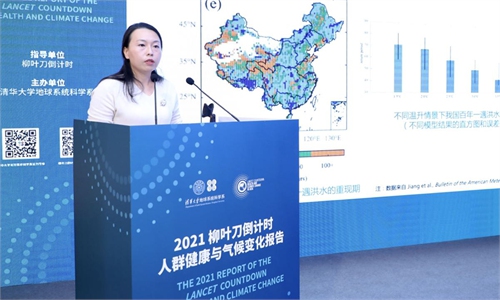Report shows ocean warming at record levels
Photo: Courtesy of Wang Shaoqing
The world's oceans are hotter than ever before, continuing their record-breaking temperature streak for the sixth straight year, according to a new report on global ocean warming in 2021.
The research, conducted by an international research team led by the Chinese Academy of Sciences (CAS), was published in Advances in Atmospheric Sciences on Tuesday.
Temperatures in the Mediterranean, North Atlantic, Southern Ocean and North Pacific Ocean all hit record highs in 2021, according to the report, which summarizes two international datasets and analyzes observation of ocean heat content and its impact dating from the 1950s.
"The ocean heat content is relentlessly increasing, globally, and this is a primary indicator of human-induced climate change," said Kevin Trenberth, one of the authors of the research report and a distinguished scholar at the National Center for Atmospheric Research in Colorado.
"Besides heat, the ocean also absorbs 20 to 30 percent of human carbon dioxide emissions, leading to ocean acidification, but ocean warming reduces the efficiency of oceanic carbon uptake and leaves more carbon dioxide in the air," said Cheng Lijing, another of the authors and associate professor with the International Center for Climate and Environmental Sciences at IAP CAS.
He noted that monitoring and understanding the heat and carbon coupling in the future will be important in tracking climate change mitigation goals.
The researchers also assessed the role of various natural variations, such as the warming and cooling phases known as El Niño and La Niña, which greatly affect regional temperature changes. According to Cheng, the regional analysis shows that the robust and significant ocean warming since the late 1950s has occurred everywhere, with a huge impact on marine life.
Ocean warming has a major influence on human activities and ecosystems, including raising global sea levels, increasing the probability of ocean heat waves, more severe storms and more extreme rainfall.
The report came at the end of the first year of the United Nations' Decade of Ocean Science for Sustainable Development Goals, which includes 17 interlocked goals to maintain human societies and natural ecosystems around the globe, many of which are related to ocean health.


